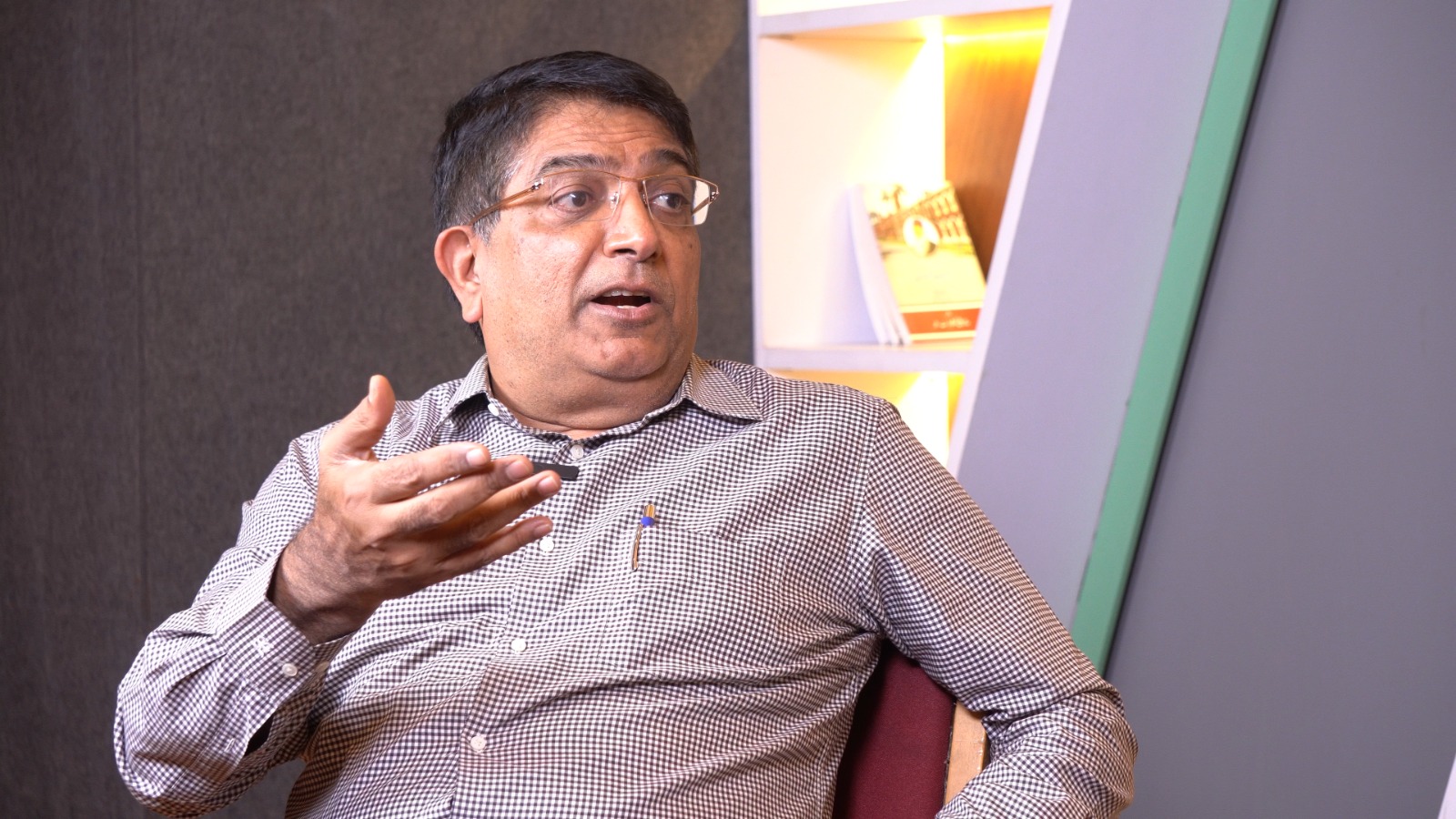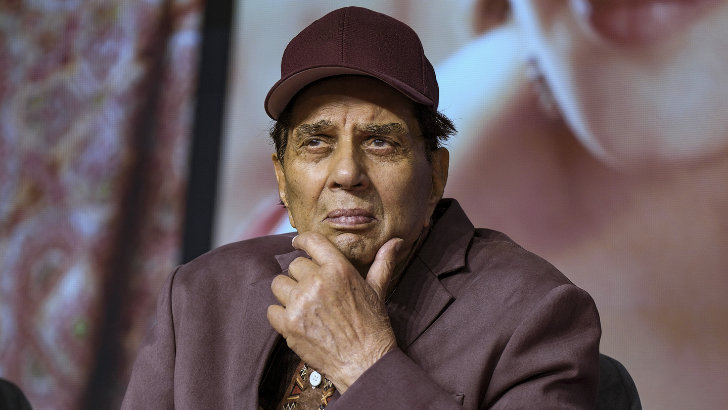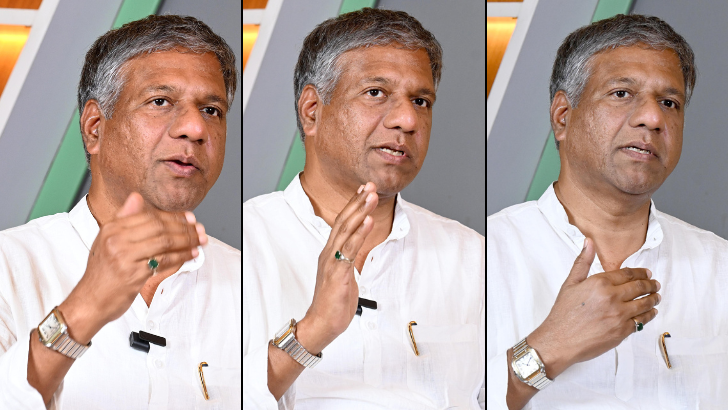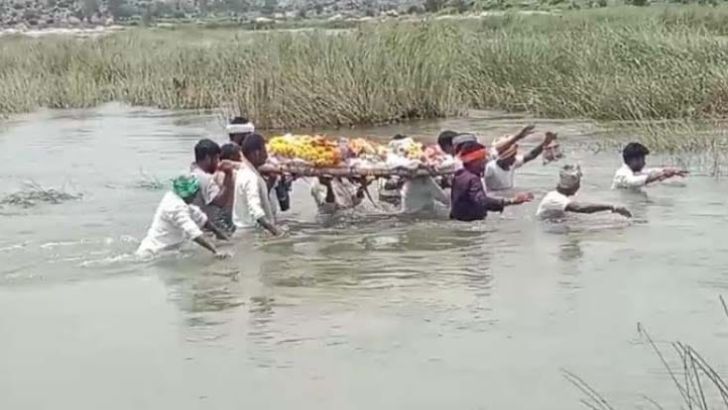GBA will be a game-changer for the City's development: Rizwan Arshad
In an interview with Salar News, Arshad, who has opposed the Centre’s push for Hindi language, says: 'We don’t need a common language to unite us as Indians. Our roots as Indians are strong enough'.
Salar News
-
Shivajinagar MLA Rizwan Arshad
Mohammed Yousuf
Bengaluru, 14 July
A foot soldier of the Congress rising from the ranks to become an MLA, Rizwan Arshad has been the youth’s face and voice in the party. In 2019, he made his debut in the Legislative Assembly by winning the Shivajinagar bypoll on a Congress ticket and retained it in 2023. In an interview with Salar News, Arshad, who has opposed the Centre’s push for Hindi language, says: “We don’t need a common language to unite us as Indians. Our roots as Indians are strong enough.”
After months of deliberations, the roadmap for the development of Greater Bengaluru has been completed, and it will be discussed in the Cabinet. Can you share the broad details of how it will benefit the administrative control of Bengaluru?
We will be announcing the boundaries of the new corporations next week. There are significant differences in the administrative mechanisms and structures that we have now created through the Greater Bengaluru Authority (GBA). Instead of one large corporation, there will be multiple smaller corporations which will be empowered, autonomous, and decentralised. When you have empowered and decentralised corporations, the administration is closer to the people, enabling a better understanding of their needs and more effective planning. I can confidently say that the GBA will definitely be a game-changer for Bengaluru’s development.
BJP has opposed the formation of the Greater Bengaluru Authority, stating it will endanger the City’s governance model and that non-Kannadigas could end up as mayors. Comment.
That phase is over now. When the joint legislature committee was formed to review the GBA Bill, BJP legislators who were also part of the panel should have opposed it then. While BJP may have opposed it as a party, individually, every member on the committee supported it. When Governor Thawarchand Gehlot sought clarifications on the Bill, a meeting was convened and the BJP’s suggestions were incorporated. We have integrated everything into this Act. The GBA will go to the Cabinet next week. This is a futuristic Act for Bengaluru’s development, designed to address the City’s challenges. Therefore, regardless of who is in power, the GBA will be a model for urban governance.
Can you elaborate on your statement that the BJP’s agenda is to impose Hindi and that the National Education Policy has been brought only to promote this language? How does it impact the states’ local languages?
The Central government has always been pushing Hindi to be the primary
language, attempting to override all other languages. But India is culturally
diverse — from north to south, east to west — and yet we are united. That is
why the world remembers our mantra of “unity in diversity”. If we try to impose
one language, one religion, or one culture over all others, it is detrimental
to the unity of the country.
No language is inferior to another. For example, Kannada has
thousands of years of history and a vast literary heritage. We have won eight
Jnanpith awards, and recently, Banu Mushtaq won the Booker Prize for ‘Heart Lamp’. Languages such as
Kannada, Tamil, Telugu, Malayalam, Marathi, Punjabi and Bengali are not lesser
than the other. We should celebrate all languages.
Unfortunately, BJP, RSS and the Centre believe that unity can only come through Hindi. But we have always been united despite our linguistic differences. We do not need a common language to be united as Indians — our roots as Indians are strong enough.
Another concern being flagged by Opposition parties in Southern states is that when the delimitation of constituencies happens after the first census in 2026, their political representation in Parliament may remain the same or even go down. Union Home Minister Amit Shah has dismissed these fears, saying southern states will instead gain additional constituencies on a pro-rata basis. Your take?
Our concern stems from the last delimitation in 1971, when a cap was imposed on
creating new constituencies based on population. Since then, population control
measures were introduced, and southern states followed them dutifully. We
brought down our total fertility rate significantly, between 1.66 per cent and
1.77 per cent, whereas the northern states, without concern for population
growth, continued to have rates of 2.8 per cent to 3.1 per cent.
Now, the states that followed population control policies
are being penalised, with the argument: “You have a lower population, so you
should have fewer seats in Parliament”. If our representation goes down because
we followed the law, what happens to our voice in Parliament?
Can we take Amit Shah’s word at face value? How many assurances have he and Prime Minister Narendra Modi made to this country? On every occasion, they have turned out to be false. They are habitual liars, and they cannot be taken seriously. This fear must be contested, and a message must be sent: Southern states will not accept this.
Congress came to power in 2023 on a campaign that focused on local issues, opposed corruption, and communal rhetoric. But the same issues are now becoming the bane of the party.
Corruption cannot be eradicated overnight. Likewise, we cannot eliminate
communal ideologies or their effects on society overnight — it takes time, but
we are working on it. BJP government, which is supposed to protect and balance
society, has itself become an aggressor against our rights. They have become an
agency that disturbs the communal fabric of society.
In Karnataka, I can proudly say, my government stands for equality and secularism. We oppose any form of discrimination, whether against the majority community, minorities, Dalits or Backward Classes.
Many ruling party legislators have complained about funds not being released for development works in their constituencies, with some claiming this is due to Congress’ guarantee schemes.
I have not faced any paucity of funds. You cannot expect more funds than your
requirements, and within what is allocated, you must prioritise. Of course, the
guarantee schemes take up a large chunk of the State’s finances, but one can
still identify the nature of work to be done within the given budget.
These guarantee schemes are vital for people affected by inflation, unemployment and rising fuel costs. The lower middle class and those below the poverty line are living on the edge, and their problems need to be addressed through such guarantees.
You have been representing Shivajinagar since 2019. What are the major development works that have contributed to the constituency’s makeover over the last six years?
I think it is better if the people of the constituency answer that. I can list any number of things, but fundamentally, we have changed the way Shivajinagar used to be decades ago — when there was no rule of law, the presence of antisocial elements and the lack of basic infrastructure or even garbage disposal systems. Today, you can see improvements in the quality of infrastructure, sewage systems, and footpaths. Schools have been established, and we are building a world-class degree college.
You came up through the ranks of Congress, having headed the state’s youth wing twice. What is your take on many loyal workers not getting their due from the party leadership?
The youth are the country’s future, and I came through the Youth Congress. When
we worked on garbage disposal in Shivajinagar by targeting black spots, youth
participation was key to the programme’s success.
Elections have become expensive, and it's often difficult for common people to contest. That said, everything is not about money. If you have public support, a proper network, and a good reputation and standing in society, people will come out and vote, regardless of how much money you have or don’t have.
You contested from Bengaluru Central twice, in 2014 and 2019. Why has the constituency been difficult for the Congress to win, with the BJP treating it as a citadel since 2009?
There are many reasons, and I don’t want to go into all of them now. There are
political factors at play. I have contested twice, and in 2024, AICC Secretary
Mansoor Ali Khan was the candidate. He came very close to winning, losing by a
margin of just 30,000 votes, which is not a large number in a Parliamentary
election. He got good support, but we couldn’t make it. Going forward, people
like Mansoor, I and other young leaders must work harder to change this. I’m
confident that in the next Lok Sabha polls, we will wrest this seat from the
BJP.
During the 2023 Assembly polls, you had promised that the I Monetary Advisory (IMA) scam victims would get their money back. Yet, many have not received what they invested.
I never told investors they would get the full amount back. As someone in
public life, I make commitments only after understanding the issue thoroughly.
I said we would fight for justice and I am happy to say that the IMA scam is
the only one in this country’s history where recovery efforts have actually
begun.
A competent authority was set up, the Special Investigation
Team seized the accused’s properties, and after many court battles, we were
able to auction a lot of movable assets and recover Rs 100 crore. Now,
immovable properties will be auctioned. I’m proud that the IMA case set a
precedent. Today, even in other scams — Ambidant, Aala — recovery processes are
underway. While victims may not get the full amount, this sends a strong
message: those who run Ponzi schemes and defraud people will not get away with
From representing the Congress Students' Union, to serving as the Youth Unit's President and now a legislator — what next?
I don't know. I have never planned my life. My life and its journey have always been at the mercy of Allah. I live in the moment. Whatever responsibility I am given, I try to fulfil it with utmost sincerity. I'm an MLA today, and my duty is to serve my constituency with dedication. As an MLA, I have raised all the relevant issues concerning the State, the country, and marginalised communities. I don't know what the future holds for me.
Watch the interview on Salar Youtube channel @dailysalardigital
Leave a Reply
Your email address will not be published. Required fields are marked *








.jpg)




.png)
.png)
.png)
.png)

.jpg)

